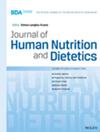Exploring Determinants of Adherence to the Mediterranean Diet Among Adults in Lebanon During the Economic Crisis: A Qualitative Study
Abstract
Introduction
Adherence to MD is declining in its native region, posing public health concerns. To improve adherence, it is important to understand its determinants. Deriving from socio-ecological models (SEM), determinants may include socio-demographic, environmental and behavioural factors. Lebanon is a Mediterranean country that faces serious challenges due to an ongoing economic crisis, which may affect MD adherence and its determinants. The aim of this study is, therefore, to explore the determinants influencing adherence to the MD in Lebanon, as well as the impact of the economic crisis on these factors.
Methods
This study employed a qualitative approach consisting of individual face-to-face interviews. A purposive sample of 25 generally healthy adults from different regions in Lebanon was recruited. Data collection started with a brief questionnaire to collect background socio-demographic information, followed by assessing MD adherence using the Mediterranean Diet Adherence Screener. Next, participants were interviewed using a semi-structured interview guide, focusing on barriers and enablers to adhering to the MD.
Results
Participants maintained a moderate adherence to MD with many reporting improving or sustaining healthy eating habits. Because of the economic crisis, the consumption of local produce became more prevalent due to import shortages, aligning with MD recommendations. Determinants included individual attitudes beliefs, particularly concerns about the quality and trustworthiness of food products during the economic crisis, and environmental factors like the unavailability of imported foods. Convenience and proximity were prioritized over cost in food purchases.
Conclusion
Despite economic constraints, many participants prioritized diet quality. People shifted to traditional, healthy diets. Emphasizing tradition, food availability, accessibility and affordability could be crucial for interventions.

 求助内容:
求助内容: 应助结果提醒方式:
应助结果提醒方式:


